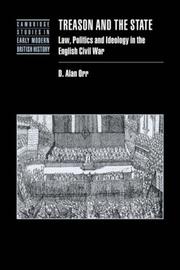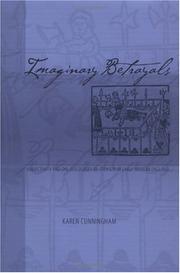| Listing 1 - 5 of 5 |
Sort by
|
Book
Year: 2002 Publisher: Monterey, CA : Defense Personnel Security Research Center,
Abstract | Keywords | Export | Availability | Bookmark
 Loading...
Loading...Choose an application
- Reference Manager
- EndNote
- RefWorks (Direct export to RefWorks)
Analyses of 150 cases of espionage against the United States by American citizens between 1947 and 2001. Provides detailed data on the demographic and employment characteristics of American spies, on the means and methods they used to commit espionage, on their motivations, and on the consequences they suffered. Collected materials on the cases supplement the analyses conducted with a database that allows comparison of groups and the identification of trends. Factors highlighted include changes in espionage by Americans since the end of the Cold War and the impact of globalization and networked information systems on the practice of espionage.
Book
Year: 2002 Publisher: Monterey, CA : Defense Personnel Security Research Center,
Abstract | Keywords | Export | Availability | Bookmark
 Loading...
Loading...Choose an application
- Reference Manager
- EndNote
- RefWorks (Direct export to RefWorks)
Analyses of 150 cases of espionage against the United States by American citizens between 1947 and 2001. Provides detailed data on the demographic and employment characteristics of American spies, on the means and methods they used to commit espionage, on their motivations, and on the consequences they suffered. Collected materials on the cases supplement the analyses conducted with a database that allows comparison of groups and the identification of trends. Factors highlighted include changes in espionage by Americans since the end of the Cold War and the impact of globalization and networked information systems on the practice of espionage.

ISBN: 9780521037334 0521037336 9780511495960 9780521771023 0521771021 051106666X 9780511066665 1107128641 1280160160 0511118317 1139146262 0511060351 0511331061 051149596X 0511068794 Year: 2002 Publisher: Cambridge : Cambridge University Press,
Abstract | Keywords | Export | Availability | Bookmark
 Loading...
Loading...Choose an application
- Reference Manager
- EndNote
- RefWorks (Direct export to RefWorks)
This study traces the transition of treason from a personal crime against the monarch to a modern crime against the impersonal state. It consists of four highly detailed case studies of major state treason trials in England beginning with that of Thomas Wentworth, first Earl of Strafford, in the spring of 1641 and ending with that of Charles Stuart, King of England, in January 1649. The book examines how these trials constituted practical contexts in which ideas of statehood and public authority legitimated courses of political action that might ordinarily be considered unlawful - or at least not within the compass of the foundational statute of Edward III. The ensuing narrative reveals how the events of the 1640s in England challenged existing conceptions of treason as a personal crime against the king, his family and his servants, and pushed the ascendant parliamentarian faction towards embracing an impersonal conception of the state that perceived public authority as completely independent of any individual or group.
Treason --- Trials (Treason) --- History --- Great Britain --- Politics and government --- High treason --- Political crimes and offenses --- Sovereignty, Violation of --- Subversive activities --- Arts and Humanities

ISBN: 0812204271 0812236408 Year: 2002 Publisher: Philadelphia : University of Pennsylvania Press,
Abstract | Keywords | Export | Availability | Bookmark
 Loading...
Loading...Choose an application
- Reference Manager
- EndNote
- RefWorks (Direct export to RefWorks)
In 1352 King Edward III had expanded the legal definition of treason to include the act of imagining the death of the king, opening up the category of "constructive" treason, in which even a subject's thoughts might become the basis for prosecution. By the sixteenth century, treason was perceived as an increasingly serious threat and policed with a new urgency. Referring to the extensive early modern literature on the subject of treason, Imaginary Betrayals reveals how and to what extent ideas of proof and grounds for conviction were subject to prosecutorial construction during the Tudor period. Karen Cunningham looks at contemporary records of three prominent cases in order to demonstrate the degree to which the imagination was used to prove treason: the 1542 attainder of Katherine Howard, fifth wife of Henry VIII, charged with having had sexual relations with two men before her marriage; the 1586 case of Anthony Babington and twelve confederates, accused of plotting with the Spanish to invade England and assassinate Elizabeth; and the prosecution in the same year of Mary, Queen of Scots, indicted for conspiring with Babington to engineer her own accession to the throne. Linking the inventiveness of the accusations and decisions in these cases to the production of contemporary playtexts by Udall, Shakespeare, Marlowe, and Kyd, Imaginary Betrayals demonstrates how the emerging, flexible discourses of treason participate in defining both individual subjectivity and the legitimate Tudor state. Concerned with competing representations of self and nationhood, Imaginary Betrayals explores the implications of legal and literary representations in which female sexuality, male friendship, or private letters are converted into the signs of treacherous imaginations.
Sex role in literature. --- English drama --- Law in literature. --- Betrayal in literature. --- Treason in literature. --- Trials (Treason) --- Subjectivity in literature. --- Law and literature --- Treason --- History and criticism. --- History --- Law. --- Literature. --- Medieval and Renaissance Studies.

ISBN: 0691057028 0691095434 9786613379788 1283379783 1400840856 9781400840854 9780691057026 9780691095431 Year: 2002 Publisher: Princeton, N.J. Chichester Princeton University Press
Abstract | Keywords | Export | Availability | Bookmark
 Loading...
Loading...Choose an application
- Reference Manager
- EndNote
- RefWorks (Direct export to RefWorks)
In Making Sense of War, Amir Weiner reconceptualizes the entire historical experience of the Soviet Union from a new perspective, that of World War II. Breaking with the conventional interpretation that views World War II as a post-revolutionary addendum, Weiner situates this event at the crux of the development of the Soviet--not just the Stalinist--system. Through a richly detailed look at Soviet society as a whole, and at one Ukrainian region in particular, the author shows how World War II came to define the ways in which members of the political elite as well as ordinary citizens viewed the world and acted upon their beliefs and ideologies. The book explores the creation of the myth of the war against the historiography of modern schemes for social engineering, the Holocaust, ethnic deportations, collaboration, and postwar settlements. For communist true believers, World War II was the purgatory of the revolution, the final cleansing of Soviet society of the remaining elusive "human weeds" who intruded upon socialist harmony, and it brought the polity to the brink of communism. Those ridden with doubts turned to the war as a redemption for past wrongs of the regime, while others hoped it would be the death blow to an evil enterprise. For all, it was the Armageddon of the Bolshevik Revolution. The result of Weiner's inquiry is a bold, compelling new picture of a Soviet Union both reinforced and enfeebled by the experience of total war.
Communism --- Propaganda, Soviet --- World War, 1939-1945 --- History. --- Moral and ethical aspects --- Propaganda. --- Psychological aspects. --- Social aspects --- Vinnyt͡si͡a Region (Ukraine) --- History --- Soviet propaganda --- European War, 1939-1945 --- Second World War, 1939-1945 --- World War 2, 1939-1945 --- World War II, 1939-1945 --- World War Two, 1939-1945 --- WW II (World War, 1939-1945) --- WWII (World War, 1939-1945) --- History, Modern --- Vinnyt︠s︡i︠a︡ Region (Ukraine) --- Abwehr. --- Allied-occupied Germany. --- Anti-fascism. --- Antisemitism (authors). --- Antisemitism. --- Banditry. --- Battle cry. --- Battle of Moscow. --- Battle of Stalingrad. --- Bolsheviks. --- Central Committee. --- Civil war. --- Collaboration with the Axis Powers during World War II. --- Collective punishment. --- Colonial war. --- Combatant. --- Communism. --- Counter-revolutionary. --- De-Stalinization. --- Decossackization. --- Dekulakization. --- Demagogue. --- Demoralization (warfare). --- Denazification. --- Deportation. --- Destruction battalions. --- Einsatzgruppen. --- Einsatzkommando. --- German war crimes. --- Great Patriotic War (term). --- Guerrilla warfare. --- Hitler's Willing Executioners. --- Home front during World War II. --- Imperialism. --- Insurgency. --- Invasion of Poland. --- Jews. --- Kolkhoz. --- Kosovo Myth. --- Lazar Kaganovich. --- Militarism. --- Militarization. --- Military occupation. --- Molotov–Ribbentrop Pact. --- Napoleonic Wars. --- National Reconciliation. --- Nationalist faction (Spanish Civil War). --- Nazi Party. --- Nazi propaganda. --- Nazism. --- Nikita Khrushchev. --- Nuremberg trials. --- On Revolution. --- On War. --- On the Cult of Personality and Its Consequences. --- Operation Barbarossa. --- Partisan (military). --- Partitions of Poland. --- Pavlik Morozov. --- People's Army. --- Persecution. --- Pogrom. --- Prisoner of war. --- Radicalization. --- Religious war. --- Reprisal. --- Resistance during World War II. --- Revolutionary terror. --- Russian Civil War. --- Russification. --- Schutzstaffel. --- Separatism. --- Soviet Union in World War II. --- Soviet Union. --- Soviet partisans. --- Stalinism. --- Terrorism. --- The German War. --- The Great Terror. --- The Origins of Totalitarianism. --- The Revolution Betrayed. --- Total war. --- Totalitarianism. --- Treason. --- Ukrainians. --- Untermensch. --- Victor Kravchenko (defector). --- Vinnytsia. --- Violent Struggle. --- War correspondent. --- War crime. --- War effort. --- War song. --- War. --- Warfare. --- Wilhelm Canaris. --- World War I. --- World War II. --- Yad Vashem. --- Zionism. --- Vinnyt︠s︡ʹka oblastʹ (Ukraine)
| Listing 1 - 5 of 5 |
Sort by
|

 Search
Search Feedback
Feedback About
About Help
Help News
News